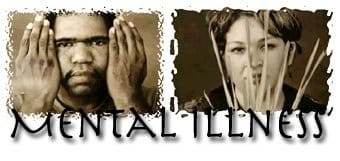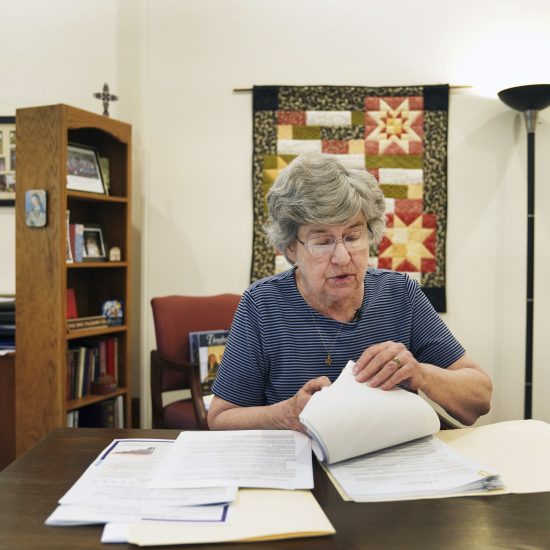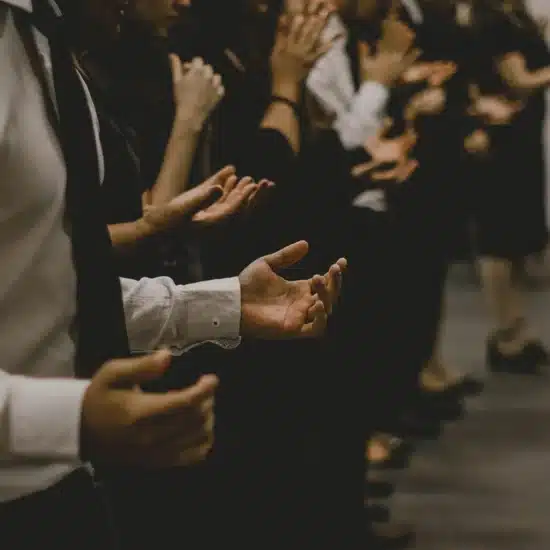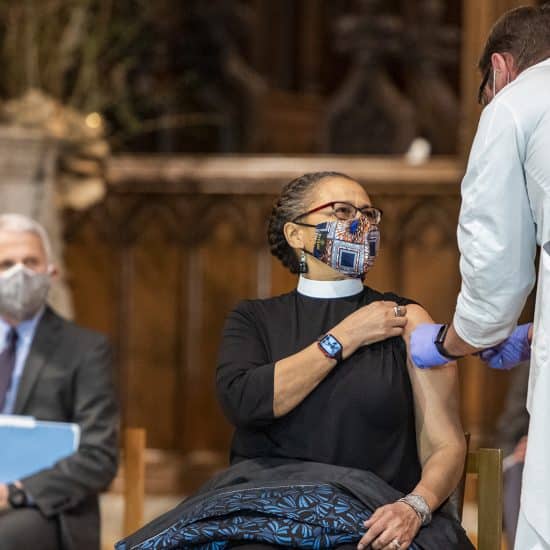Congregations often view their pastors as strong, stable shepherds, but many ministers experience a disconnect between the image they project and the mental and emotional battles to which they are subject.

Watch a video of the work of photographer Michael Nye of San Antonio, whose sensitive portraits document the faces of mental illness.
|
“I have never met a clergy person, either in therapy or out, who did not suffer some type of wound to their self,” said clinical psychologist Robert Randall, who spent 37 years as minister of counseling at St. Peter’s United Church of Christ in Elmhurst, Ill.
Clergy are not very good at taking care of their health, he said. “The common excuse is ‘not enough time,’ but the underlying problem has more to do with narcissistic issues.”
Clergy want to be seen as unshakeable and don’t allow anyone to see what they are going through. Instead, they keep “working and working” to be seen as productive and indispensable, Randall said.
“For some clergy, there is a long history of struggles to maintain firm self-cohesion and self-esteem,” he said. “But even pastors with a firm sense of self are always vulnerable to having their self shaken.”
Cliff Caton, pastor of First Christian Church in Blue Springs, Mo., and student at Central Baptist Theological Seminary, speaks about his history of depression from the pulpit.
Caton’s experience with depression came before he was a pastor. He lost his job at a bank, faced the foreclosure of his home and was divorced—all in a 90-day period. “I just sat in my apartment for a year, leaving to go to the gym and buy groceries,” he said.
Sharing his experience with his congregation gives them permission to not be perfect, he said. Several have come forward to seek help for their own struggles.
Speaking about depression and other mental health issues can help remove the stigma, he said. “A number of clergy still view it (depression) as a weakness, but it’s a disease. Is there shame in having mumps?”
Randall recommends four steps for pastors facing depression:
• “Admit you are depressed and need help. Understand that this admission is a sign of strength, not of weakness—you care enough about yourself, and about those whose lives you touch, to reclaim your life.
• “Get into psychotherapy with a good therapist, one who not only understands depression but also understands the life of ministry. Stick with the therapy!
• “Consult your M.D. or a psychiatrist who your therapist might know to discuss the possible need for antidepressants. Stick with the medication!
• “Keep putting one foot in front of the other, even if you don’t feel like it. Maintain your routine.”
While Caton had good experience speaking to his congregation about his depression, Randall cautions against sharing while in the midst of the struggles. “If a depressed pastor is still functioning fairly well, then the pastor should treat his/her depression as his own personal issue, shared with family and select friends, but not made a congregational issue.”
If the pastor’s work is impaired, he or she needs to inform the elected leaders of the church. The pastor and the leaders can discuss the best way to inform the congregation and the path that needs to be taken, Randall said.
“At all times the pastor wants to avoid trying to attract sympathy to him or her self. The pastor and church leaders should lift up the situation of the pastor’s depression as a normal human predicament that commonly arises in individuals, that can be overcome and that will be dealt with common sense and caring skill.”
Jennifer Harris is the news writer for Word&Way.






